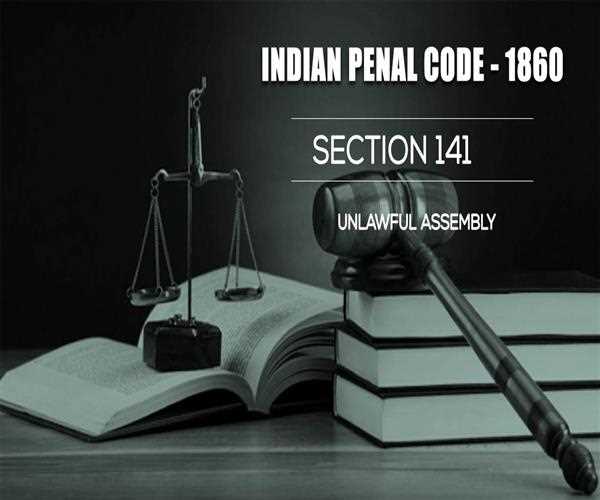Section 141 of the Indian Penal Code has the definition of Unlawful Assembly whereas section 149 of the Code defines the offense that has been committed under the shadow of section 141.

Introduction
In Indian Constitution, the rule of law has been defined as the sovereign authority and everybody including the lawmakers and constitution maker of the country. The rule of law has some codes and one of them is the Indian Penal Code 1860. The code defines the punishing nature of the Law.
Hence many acts have been committed by the people of the country that will all fall under the Indian Penal Code.
Read More:
What is the 'Rule of Law'?
Similarly section 141 has been defined as
Section 141 of IPC
This section defines the term ‘Unlawful Assembly’ as defines the act or activity which will be included under the definition of the term.
It says that the assembly that has been organized, should have a common objective.
The section has clearly stated that the Unlawful Assembly will have at least 5 members or more than this.
Here the word ‘Common object has been defined under section 34 of IPC.
It also said that the object of the assembly should have the standards of illegality.

Section 149 of the Indian Penal Code
Section 149 of the IPC talks about the offence for Unlawful Assembly guilty of the offence committed in prosecution of the common object.
If an offence is committed by any member of the Unlawful Assembly having the common object, all participants will be accepted guilty of the same offence.
Ingredients of section
- In the prosecution of the common object
- Here the above word is meant “in order to achieve the common object.”
- Members new to be likely
- Here the above ingredients are only meant to the well known about the nature of the act that has been planned by the accused. The above prosecution of the common object is linked with the knowledge of the intention.
- Five or more persons
- Here the person, in the crime should be at least 5 and all should have the common object of the act.
Read More: The concept of ''Rule of Law'' is a special feature of constitutional system of which country?